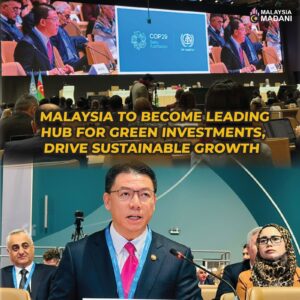
Today, I once again highlighted the pressing issue of land title requirements, a key condition for two major initiatives under the Ministry of Housing and Local Government (KPKT). This requirement, which affects both the Rumah Ibadat Bukan Islam (RIBI) program and the Rumah Mesra Rakyat (RMR) scheme, poses significant challenges, especially for rural communities in Sarawak.
Yesterday, during the Dewan Rakyat session, I received the same response from KPKT as in the previous session, when I raised concerns about the main eligibility requirement for the RMR application — the submission of a valid land document issued by the Land Office. However, I believe the land title requirement for the RIBI program should be reassessed.
I reiterate my confidence that the RIBI program under KPKT can be further improved with a more inclusive and practical approach.
KPKT insists that all applications must fulfill the requirement of possessing a land grant. This condition disproportionately affects rural communities, particularly those in areas with Native Customary Rights (NCR) land, who are still awaiting land grant approval from the Land and Survey Department of Sarawak (JTS).
This situation also complicates access to assistance for non-Islamic communities in Sarawak, the majority of whom live in rural areas, hindering the development, maintenance, and sustainability of their places of worship.
Therefore, I urge KPKT to consider alternative approaches or relax this condition to ensure no community is excluded. For example, the Ministry could adopt a more flexible approach, similar to the one used by the Sarawak State Government through the Unit for Other Religions (UNIFOR), which has proven effective in ensuring rural communities are not disadvantaged by factors beyond their control.
In Sarawak, I am confident that almost all the requirements for RIBI funding can be met, except for the land grant condition. While this limitation stems from issues with the Sarawak State Government, it should not imply that existing non-Islamic places of worship are built on illegal land.
This issue affects Sarawak as a whole, regardless of the religious affiliation of the places of worship, but especially impacts rural areas, which are most affected by this requirement.
As a Member of Parliament, I will continue to advocate for justice for all Malaysians, regardless of their religious background. Ensuring justice in this matter is vital to upholding freedom of religion and fostering unity and harmony within our nation.
I hope the Ministry will consider this proposal and provide a more responsive solution that meets the needs of all Malaysians.
Mordi Bimol
Member of Parliament of Mas Gading



